Covid: Wales' mask law to end in shops, but not NHS
- Published
- comments

Face masks will no longer be legally required in Welsh shops
Wales is to press ahead with scrapping self-isolation rules and the legal requirement to wear a mask in shops, buses and trains on Monday.
In response to rising cases, driven by a sub-type of Omicron, the Welsh government said it would keep some, but not all, of its remaining Covid rules.
Companies will still be expected to asses the risk of Covid in their workplaces and take precautions.
But face coverings will only be legally required in health and social care.
The decision has sparked concern among some experts and Plaid Cymru's leader Adam Price, over the possibility of new variants in the future.
All of Wales' coronavirus regulations were due to expire on 28 March.
The Welsh government had planned to let them lapse but earlier this week ministers said they were thinking again.

Face coverings will only be legally required in health and social care settings
Georgina Pattinson, who runs Conwy Collectibles on Conwy High Street, said: "We've got a very small shop and I feel we need to protect ourselves so we shall continue to use these masks, probably all year, until we feel the Covid has passed.
"Because at the moment, just chatting to people, there are very many people just walking around today who say, 'Oh, I've just got over the Covid' or 'My son's got the Covid' and you do feel a little bit vulnerable."
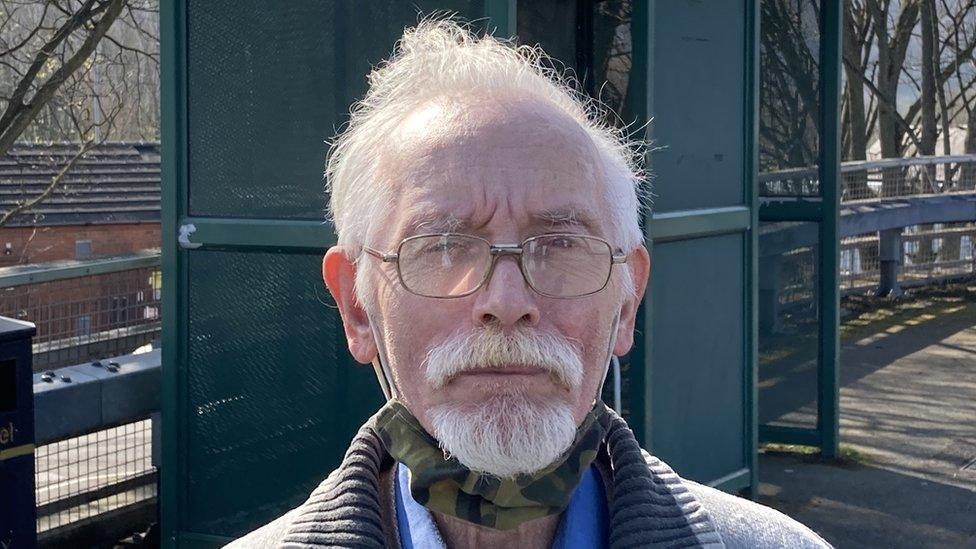
Robert Hedge said he might wear a mask if there were a lot of people
'If people feel safer wearing a mask, then good luck to them'
Pensioner Robert Hedge lives in Penmaenmawr, Conwy county, and relies on public transport.
"It's up to the individual. If they feel safer wearing a mask, then good luck to them," he said.
"I'm not overly bothered.
"I might (wear a mask). It depends how I feel if there's a lot of people."
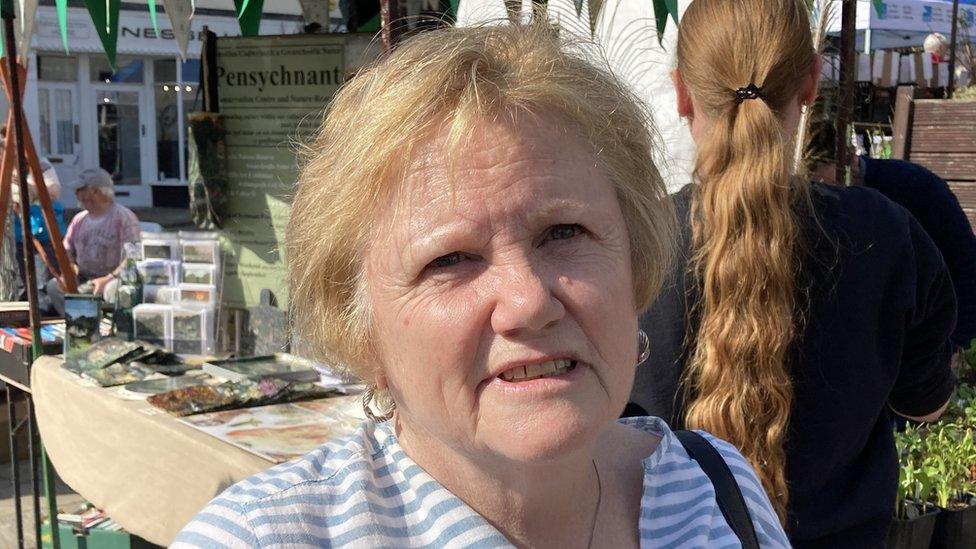
Valerie Jones may still wear one because she has family members with underlying health conditions
Valerie Jones, from Llandudno Junction, was enjoying today's Seed Fair in Conwy.
"I will still be wearing a mask because I have family members with underlying health conditions so I feel to keep them safe I will carry on in supermarkets and on transport."
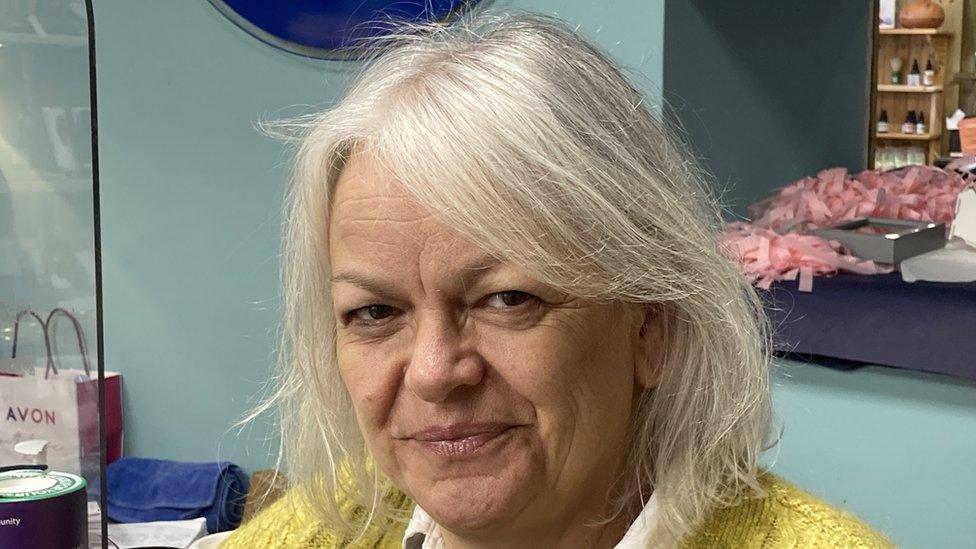
Michelle Davison will keep the screens up in Conwy Art and Soap Bar
Michelle Davison, who runs her shop Conwy Art and Soap Bar, said: "I think it's welcomed from the point of view of people feeling a little bit freer.
"But from our point of view we are still going to keep our screens up because we are aware that it (Covid) hasn't gone."

Virologist Prof Richard Stanton said he would be surprised to see restrictions disappearing, saying "England set the tone" by getting rid of them and the Welsh government has a "fine line to walk".
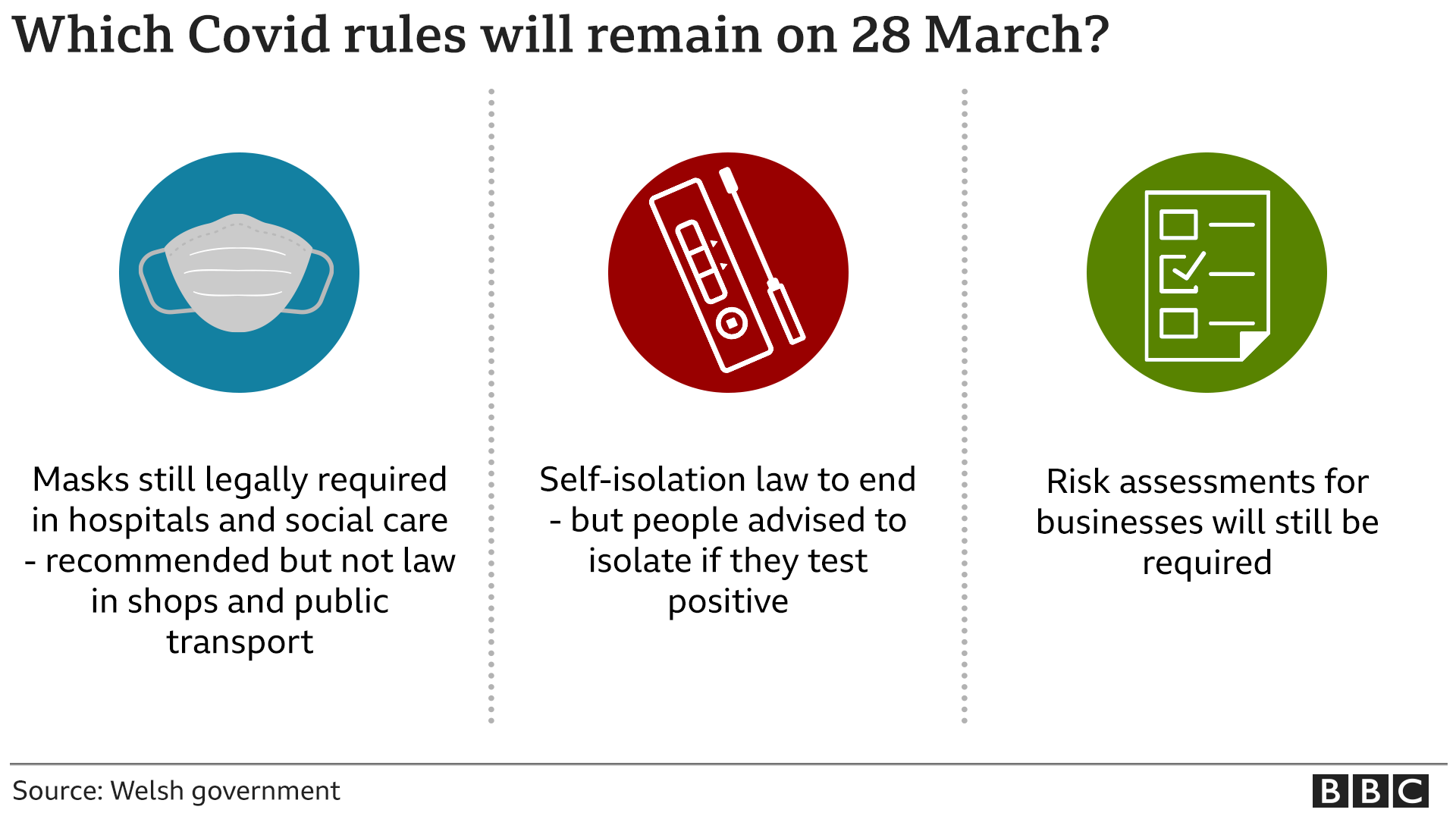
He cautioned on BBC Radio Wales Breakfast: "We are seeing a rise in cases as restrictions are starting to lift and this increase is spilling over to hospital increases at a time when the NHS is already stretched".
Prof Stanton, of Cardiff University, said the concern was that people would "think it's over" and with the likelihood of new variants emerging, these could spread more rapidly with no restrictions.
Allow X content?
This article contains content provided by X. We ask for your permission before anything is loaded, as they may be using cookies and other technologies. You may want to read X’s cookie policy, external and privacy policy, external before accepting. To view this content choose ‘accept and continue’.
Alex Osbourne of Disability Wales is also "very concerned" about the prospect of masks no longer being a legal requirement as well as self-isolation rules disappearing.
The 31-year-old from Caerphilly has multiple sclerosis and believes those who have needed to shield have "been forgotten".
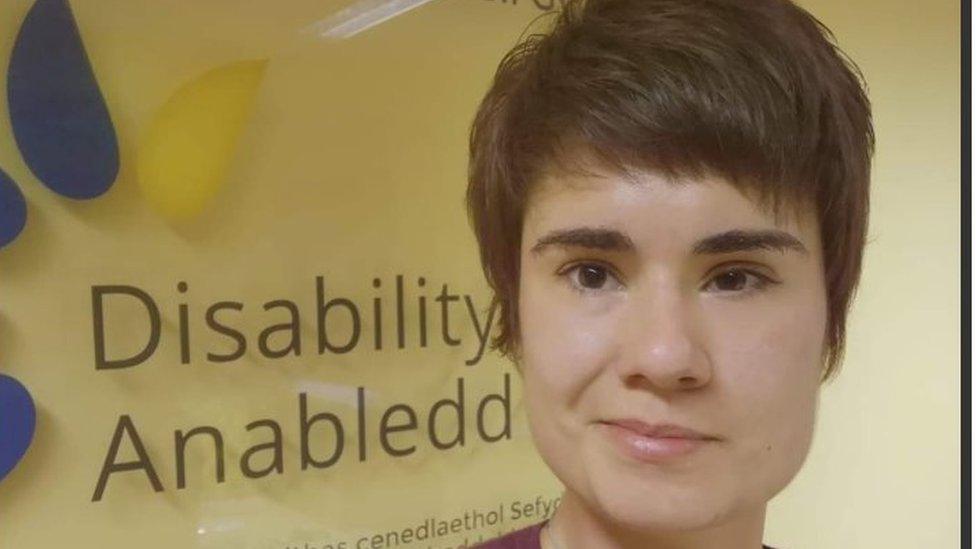
Alex Osbourne is worried about the implications of changes
She said: "People at risk may have no choice but to come into contact with some people who are Covid-positive, and at the same time masks are going.
"People really want to start going out and feeling positive. It's quite a shock."
Ms Osbourne urged people to keep washing hands, and if they have a cough or cold, be mindful of who they are meeting.
What remains of the law will be extended for at least a further three weeks, with another review due on 14 April.
PCR tests for the general public will no longer be available from Monday, although the Welsh government plans to keep lateral flow tests free for people with symptoms until June.
Lateral Flow Tests will remain free in Wales amid a "rapid increase" in cases
First Minister Mark Drakeford said: "We have seen an unwelcome rise in coronavirus cases across Wales, mirroring the position in most of the UK.
"We have carefully considered the very latest scientific and medical evidence and we need to keep some legal protections in place for a little while longer, to help keep Wales safe."
In a press conference he said his cabinet's decision to scrap the remaining restrictions was "finely balanced".
He said Wales cannot "go on forever relying on the force of the law" to keep the country safe from coronavirus.
"We have tried to find that spot where we recognise and respond to the growing numbers, but keep us on the basic journey where we are living with coronavirus, but not on the emergency basis that we needed for the last two years."
Allow X content?
This article contains content provided by X. We ask for your permission before anything is loaded, as they may be using cookies and other technologies. You may want to read X’s cookie policy, external and privacy policy, external before accepting. To view this content choose ‘accept and continue’.
He said levels in intensive care "have remained broadly stable for the last 10 days.
"We are seeing more cases, but not more serious cases."
Wales' mask law will be amended from Monday so face coverings will no longer be legally required to be worn in shops and on public transport.
The Welsh government still recommends people use them and they will be legally mandated in health and social care.
Guidance will be issued recommending people self-isolate if they get Covid, but from Monday they will not be required by law to do so.


For two years we've relied upon data to guide our actions.
So with rates rising, is it any wonder some feel apprehensive that regulations surrounding mask wearing are to go - that guidance alone won't have the same impact?
But the picture is different today. High vaccination rates and the dominance of a less virulent strain mean the harm to those testing positive is reduced.
Of course, incidental cases in hospitals - where patients are primarily being treated for something else - still pose infection-control challenges for the NHS.
And as we move to a period where health and social care staff continue to be tested - unlike the rest of us - the pressure of staff absences could continue.

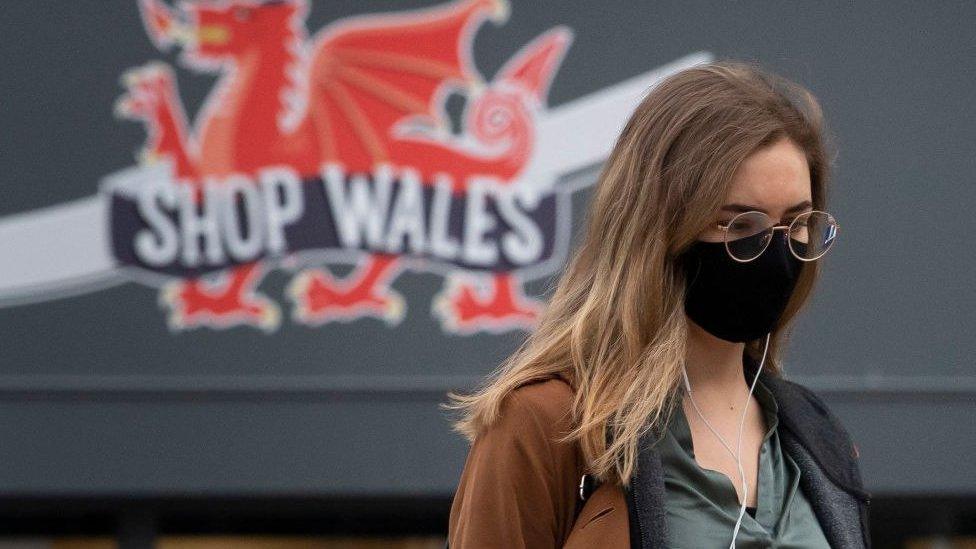
Face masks have been a common sight in shops for the past two years
Payments of £500 for self-isolation will remain available until June.
However, companies will still need to carry out risk assessments on their premises and put in place "reasonable measures" to guard against coronavirus.
The move will leave Scotland the only UK nation with masks legally required in shops after ministers decided to keep the regulations into April.
Welsh Conservatives welcomed the end to self-isolation and masks in shops and on public transport, but accused Labour of being "anti-business".
Tory health spokesman Russell George said: "At a time when the government should be doing all it can to boost jobs and productivity, is it right that businesses should continue to have fill out paperwork with little value? We need to trust businesses to do what is right to keep their staff and customers safe."
Cases rising
Plaid Cymru leader Adam Price said his party was "surprised and a little bit concerned" by the Welsh government's changes to Covid regulations.
He told BBC Radio Wales: "We shouldn't interpret this as as moving away from the position where we still have to be conscious of the possibility that it could be further waves which could cause further problems that could be more more severe.
"Unless we have the surveillance in there, at least, then we're not going to be able to track those and be able to respond quickly enough."
The weekly swab survey by the Office for National Statistics has shown a rise in infections in the past couple of weeks.
It suggested that 125,400 people in Wales had Covid in the week ending 12 March - up on the previous week's estimate of 97,900.
PCR Covid results have diminished in importance in recent months but have also shown an increase.
On Thursday, Wales' case rate stood at 424.2 per 100,000 people over seven days, up from about 156 at the end of February.
Earlier this week, Health Minister Eluned Morgan said most people would experience mild symptoms from BA.2, the Omicron sub-type, but it is still expected to drive an increase in cases and hospital admissions.
- Published16 March 2022
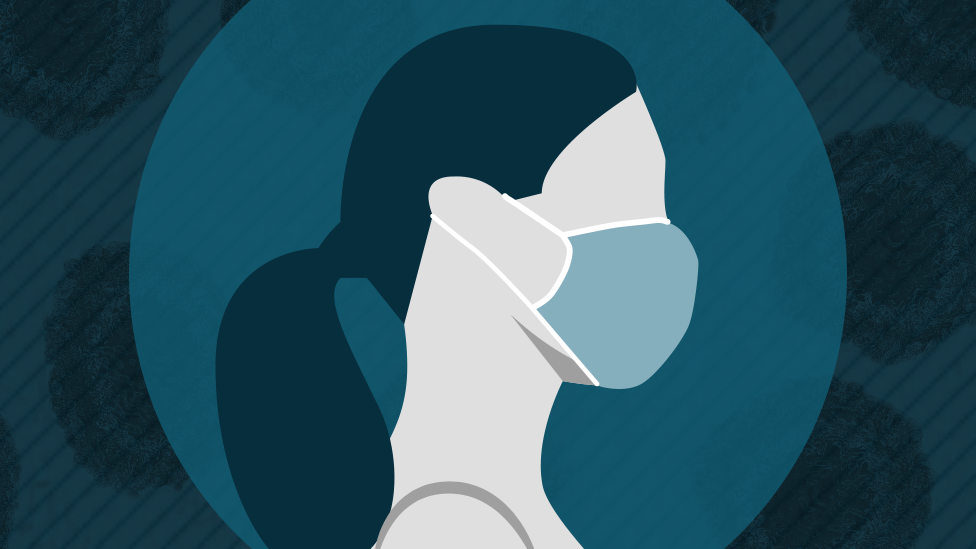
- Published1 July 2022
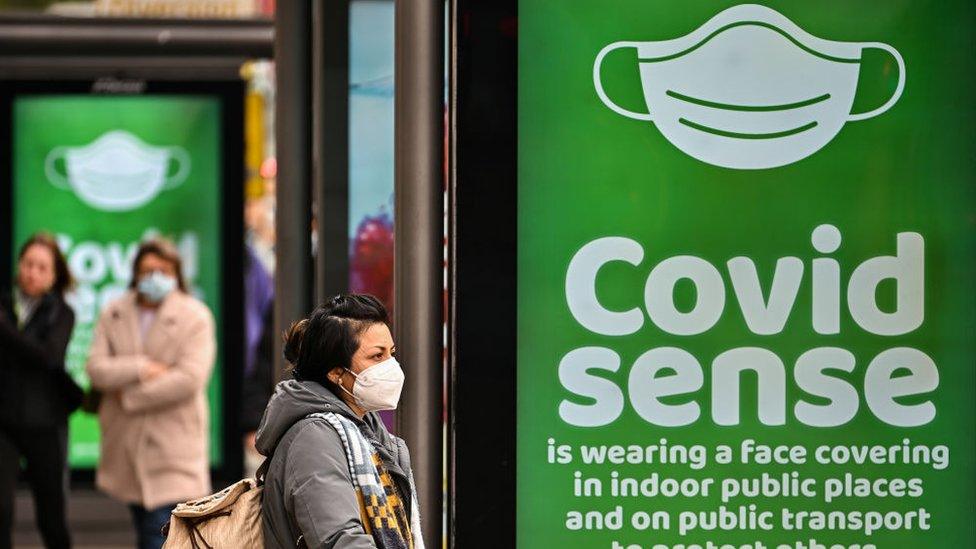
- Published20 March 2022
